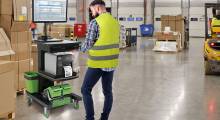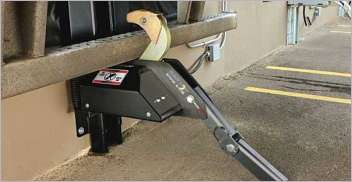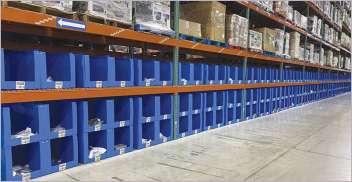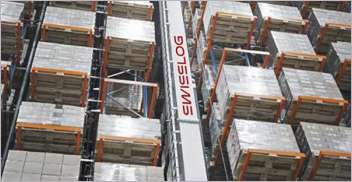Lift trucks often need to traverse dock levelers and other uneven surfaces that make ruggedness a sought-after feature of not only the trucks themselves but all the computing gear that needs to go on them, including vehicle-mount computers.
For certain, vehicle-mount computers are built to withstand rugged use and harsh temperatures, but they also need a high level of versatility in terms of supporting wireless network environments, while also being able to drive insights for fleet management, says Eric Miller, CEO of JLT Mobile Computers.
“The vehicle-mounted computer needs to be a tool that allows the driver to be productive and efficient. Therefore, the computer must have a display that can be read indoors and out; connectivity that allows for roaming throughout the warehouse or yard; input options that are precise and easy to use such as touchscreen, custom soft keyboard or physical keyboard; and the input to allow scanners, cameras and printers to be attached.” - says Miller
Miller adds that the computer must be packaged to minimize its footprint allowing for maximum driver visibility, increasing safety for the driver and the surrounding area. “Additionally, the IT organization must be able to manage the device remotely and make changes to the device if needed to maximize uptime.”
While the look of vehicle-mount computers hasn’t changed radically in recent years, newer computers continue to add support for the latest in wireless communications protocols, as well as operating systems. For example, notes Miller, JLT’s JLT6012 Series supports wireless wide area network (WWAN) communication, which is sometimes used in port yards or sprawling facilities. When it comes to Wi-Fi communications, the latest protocol that new vehicle-mount computers should be able to support is Wi-Fi 6, which Miller says offers higher security, increased speed and more efficient data transmission.
Android has proven to be a popular operating system (OS) for vehicle-mount computers, but some operations want Windows, which is why the JLT6012 series runs both, allowing the end user organization to choose. Miller says Windows 11 offers enhanced data security and improved user friendliness compared to previous versions of the Windows operating system.
Regardless of OS choice, end users are after highly secure computers for their operational systems, including solutions like warehouse management systems that might be running on vehicle-mounted computers.
“Looking ahead, we predict an even greater focus on security issues, such as encrypted connections, hardware-based isolation abilities and malware protection, as well as workforce safety and user-friendly solutions,” says Miller.
Sensors in the latest vehicle-mount computers can also generate alerts and data on fleet trends. For example, JLT offers a software solution called JLT Insights that leverages sensors on the JLT6012 series of rugged computers, such as gyroscope and shock sensors, as well as location data gleaned by knowing the distance to wireless access points.
This data can be analyzed in the software to spot potential issues with safety, like bottleneck areas with unusually high traffic, or issues with network connectivity, like poor performance starting to occur at an access point.
While operators use vehicle-mount computers every day to collect data on task completions, or scan bar codes to verify a pallet pick or material move, with at least some new vehicle-mount computers, the device technology itself is also generating useful data behind the scenes to feed into cloud software for drill downs and analysis.
“Warehouse technology is becoming more and more cloud-based,” says Miller. “By leveraging real-time data and advanced analytics, businesses can unlock new levels of efficiency, safety and profitability in their warehouse operations.”
Article topics









